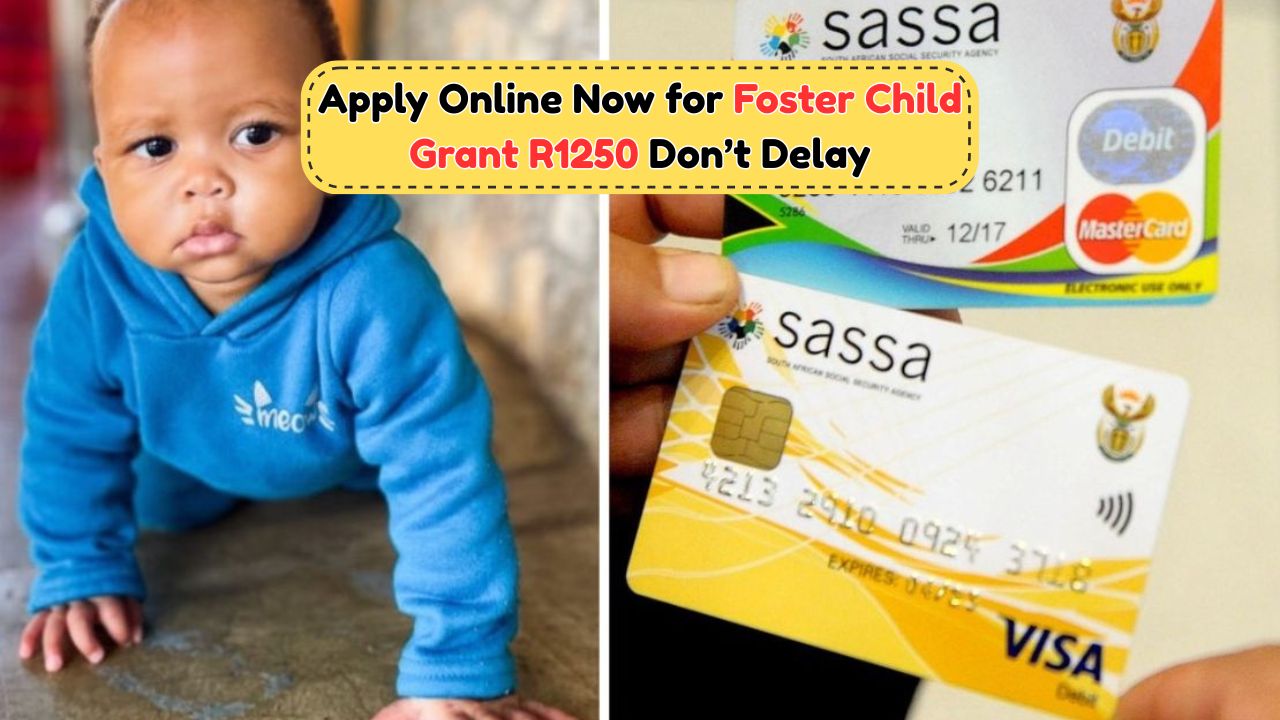R1,250 Foster Child Grant 2025: Understanding the ins and outs of the South African foster care grant system can be a daunting task. With 2025 fast approaching, many caregivers are seeking ways to provide better for the children under their care. The R1,250 Foster Child Grant offers a lifeline to those fostering children who need financial support. This grant aims to ease the burden on foster families, ensuring that children receive the necessary care and resources. To unlock this financial assistance, it’s crucial to understand the application process, eligibility criteria, and required documentation.
Eligibility Criteria for the R1,250 Foster Child Grant in 2025
To access the R1,250 Foster Child Grant, potential applicants must first meet specific eligibility criteria. The South African Social Security Agency (SASSA) administers this grant, and applicants must comply with their guidelines. Primarily, the child must be legally placed in the foster care system by the court. This entails that a social worker has assessed the child’s situation and concluded that foster care placement was necessary for the child’s well-being. The child must be under the age of 18, although the grant can be extended until the age of 21 if the child is still in school or a training program. Furthermore, the foster parent must be a South African citizen, a permanent resident, or a refugee with the right to reside in the country. It’s essential for applicants to provide documentation that proves their legal relationship to the foster child, as well as any court orders related to the foster care arrangement. Meeting these requirements is pivotal for a successful application.
Step-by-Step Application Process for the R1,250 Foster Child Grant
Applying for the R1,250 Foster Child Grant involves several steps, all of which are necessary to ensure the application is processed efficiently. Interested parties should first visit their nearest SASSA office to obtain the official application form. It is advisable to make an appointment beforehand to avoid long queues and waiting times. Once at the SASSA office, applicants should bring along the child’s birth certificate, the court order that placed the child in foster care, and the applicant’s ID or proof of residence. The application form requires detailed information, so filling it out carefully is crucial. After submission, SASSA will review the application and may request additional information or documents to verify the details provided. Once approved, the grant will be dispensed monthly, providing much-needed financial support to the foster family. It’s important for applicants to keep their contact details updated with SASSA to receive any communication about their application status.
Key Benefits of the Foster Child Grant in 2025
The R1,250 Foster Child Grant offers numerous benefits to foster families, significantly impacting the lives of both the caregivers and the children. This financial support ensures that foster children have access to basic necessities such as food, clothing, and educational materials, which are crucial for their development and well-being. Additionally, the grant can alleviate some of the financial stress on foster parents, allowing them to focus more on providing emotional and psychological support to the child. This support is vital, as many foster children come from challenging backgrounds and require stability and care to thrive. The grant also plays a role in encouraging more families to consider fostering, knowing that financial assistance is available. This can lead to more children being placed in nurturing environments, promoting better outcomes for their futures.
Common Challenges and Solutions in the Application Process
While the R1,250 Foster Child Grant provides essential support, applicants often face challenges during the application process. One common issue is incomplete or incorrect documentation, which can delay the approval of the grant. To mitigate this, applicants should double-check all required documents and ensure they are up-to-date and accurate before submission. Another challenge is the potential backlog at SASSA offices, leading to prolonged waiting periods for appointments and processing. To address this, applicants are encouraged to apply as early as possible and to regularly follow up on their application status. SASSA has also been working on improving their systems and processes to reduce waiting times and enhance service delivery. Understanding these challenges and being proactive can significantly improve the chances of a successful application, ensuring that foster families receive the support they need in a timely manner.

